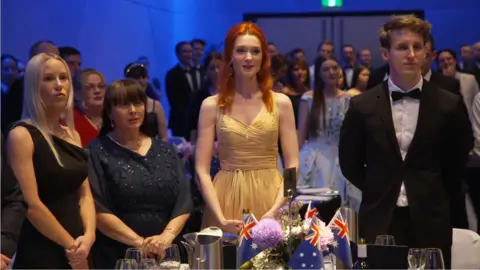 The BBC
The BBCWith a night of bottomless drinks, a three-course dinner and an auction packed with royal memorabilia, the University of Queensland Monarchist League’s annual ball is a sell-out.
Billed as a celebration of the Crown, a rendition of God Save The King followed by Australia’s national anthem kicks off the event. When dinner is done, the bidding starts.
First up, a limited-edition Royal Doulton plate with a hand-decorated portrait of the King to mark his 60th birthday. Also on the ticket – an oil painting of King George V and a bottle of Cabernet Sauvignon signed by monarchist and former Prime Minister Tony Abbott.
For the 200 students and their guests, the fact that King Charles is traveling over 16,000 km (10,000 miles) across 10 different time zones, to tour the country from 18 to 26 October – all while going through cancer treatment – is a testament to his Love of Australia. And for that they are grateful.
“He’s such a big part of our history and our traditions, it’s wonderful we get to celebrate it,” says student Eliza Kingston.
“He’s just as much the King of Australia as he is the King of England,” Jeremy Bazley adds enthusiastically.
But amid a cost-of-living crisis, many Australians have failed to take notice of the trip at all – while some campaigners have tried to frame it as the royal family’s “farewell tour”, in a bid to reinvigorate the decades-old republican debate.
It’s a question that the government has, for now at least, put on ice – while King Charles earlier this week reiterated the longstanding palace policy that the matter should be left for the “public to decide”.
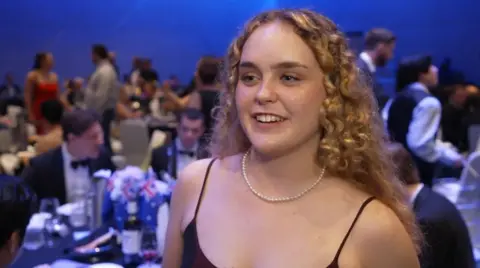
Last year’s unsuccessful vote on the constitutional recognition of Aboriginal and Torres Strait Islander people has stalled momentum for another referendum – which is the only way to change Australia’s constitution. The bruising campaign divided the nation at times, while leaving many of its first inhabitants feeling silenced.
It’s a backdrop that will no doubt impact the tone of this royal tour, which includes events in Sydney and Canberra, and is the first in over a decade.
A nation split
This will be King Charles’s 17th visit to Australia. His first was in 1966, when he came as a teenage prince to spend two terms at Timbertop – a campus of a boarding school in the mountains of Victoria. His time there was, he said, “by far the best” experience of his education.
He’s since returned 15 times for official tours, including a trip with Princess Diana to one of the country’s most famous landmarks, Uluru. Most recently, he opened the 2018 Commonwealth Games on the Gold Coast.
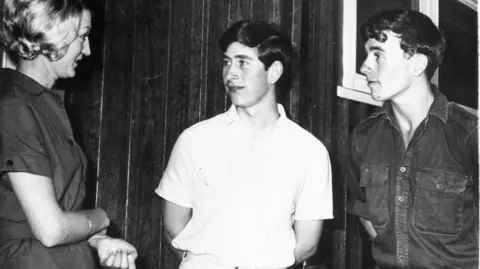 Getty Images
Getty ImagesSo, what sort of welcome will he receive since becoming King? The data suggests the nation is split.
A snapshot survey after his coronation, conducted by Roy Morgan Research, indicated 60% of Australians wanted the country to remain a constitutional monarchy.
But last year, a poll by YouGov suggested that number had dwindled to 35%, and that 32% of people appeared to favor becoming a republic as soon as possible.
A further 12% felt that should only happen when the King died, and 21% just didn’t know.
And while just over a third of those questioned thought the monarchy was good for the country, about 20% thought it was bad – while 38% were indifferent.
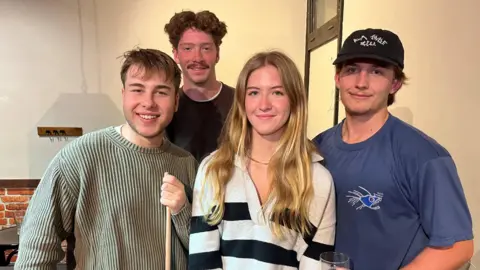
At the Royal Hotel Darlington pub, opposite the University of Sydney, students who have finished classes and are headed for a pint had no idea that a visit from the King was imminent.
“To be honest, not that many people would know about it or think too much about it,” says 19-year-old Charlotte Greatrex. “We all get very swept up in uni or whatever’s going on in our own lives that it doesn’t seem to influence us that much.”
Her friend Gus Van Aanholt agrees: “I feel older generations, like my parents and my grandparents, would have much more of a stronger connection to the monarchy.”
Polling has often pointed to a generational gap – indicating increased support for the monarchy among older Australians.
Ahead of the King’s visit the Australian Republic Movement (ARM) wants to capitalize on what it sees as a growing indifference to the monarchy. It recently released a tongue-in-cheek media campaign depicting King Charles, Queen Camilla and the Prince of Wales as aging rock stars delivering their final show, while encouraging people to “wave goodbye to royal reign”.
Although a 1999 referendum on becoming a republic was resoundingly defeated, the ARM would like to see the question put to the people again.
“We’ve been independent for a long time now but that last little step of independence for us is splitting away from the monarchy,” says co-chair Nathan Hansford.
“Regardless of whatever connotations you want to put towards the British royal family in the past, it’s really a story about us moving forward as a nation.”
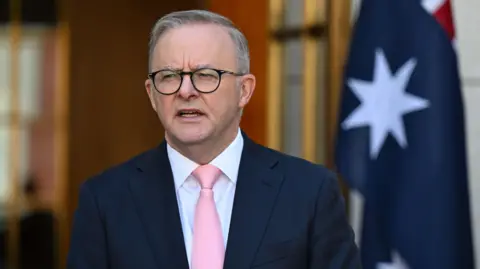 EPA
EPAWhen the King and Queen fly into Sydney on Friday, they will be greeted by one of Australia’s most prominent republicans, Prime Minister Anthony Albanese.
He has long made it clear that his country’s future should be one without a monarchy. He even appointed an assistant minister for the republic.
But in recent months, a cabinet reshuffle and the removal of the Republican portfolio revealed that plans to hold a vote on the issue had been shelved.
Like much of the world, Australians are struggling to keep up with the rising costs of everyday essentials, and the government knows it’s not going to win a referendum when there isn’t the appetite for what many would see as an expensive distraction.
In short, Albanese has assessed that a republican vote is not a priority for the general public right now.
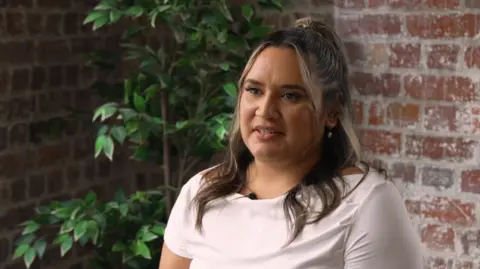
For their part, many Indigenous Australians feel last year’s referendum result was a clear indication the country still has a lot of work to do to grapple with the ongoing impacts of its colonial past, before it can debate its future.
“I think if we do end up going to another referendum, we have to make sure that we deal with First Nations issues… we still have people experiencing intergenerational trauma, so understanding the history of what has happened in this country is really key,” says Allira Davis, a Cobble Cobble woman and co-chair of the Uluru Youth Dialogue.
She’s proud, though, of how much more diverse the nation has become, since King Charles first touched down as a 17-year-old.
“We’re not white Australia anymore, we’re a brown Australia.
“We have multicultural, diverse backgrounds coming from all nations, and it’d be very interesting to see a brown head of state, or a black head of state, but before we do that, we need to include our First Nations and recognize that. “
Additional reporting by Martin Bunyard in Brisbane





